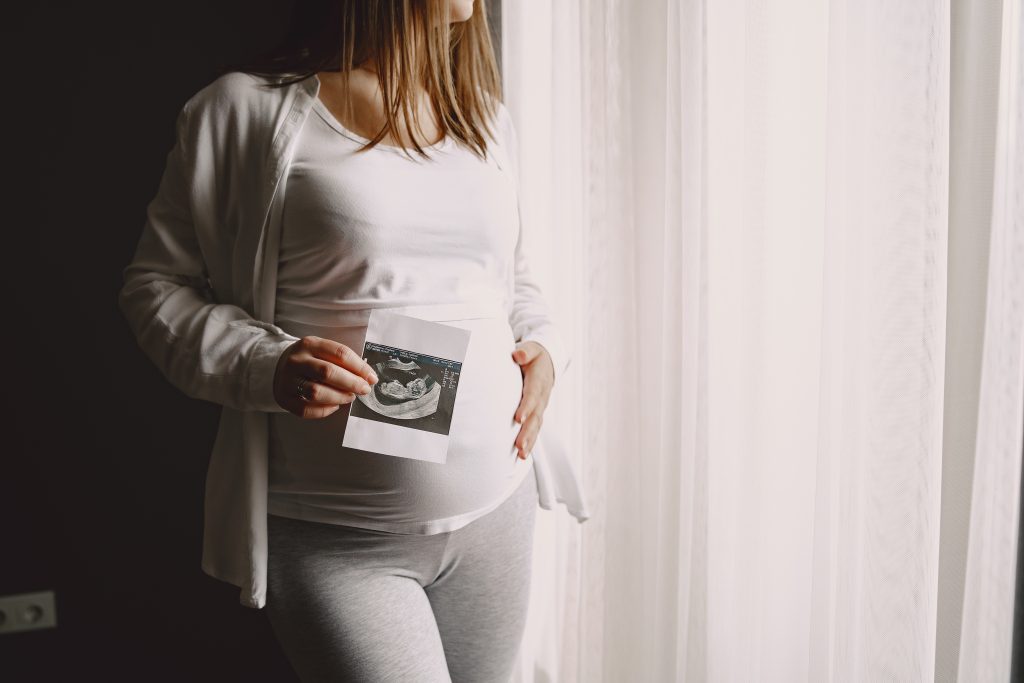
Pregnancy is a remarkable journey that brings about significant changes in a woman’s body. While some pregnancies are planned, others come as a surprise. Regardless of how you find yourself on this path, recognizing the early signs of pregnancy is crucial. Early detection can help you make informed decisions and ensure the health and well-being of both you and your baby. In this article, we will delve into the early pregnancy symptoms you need to know, shedding light on the subtle and not-so-subtle signs that may indicate you’re expecting.
1. Missed Period
Perhaps the most well-known and definitive sign of pregnancy is a missed period. If your menstrual cycle is usually regular and you suddenly find yourself skipping a period, it’s time to consider the possibility of pregnancy. This occurs because, during pregnancy, the body stops releasing eggs, and the uterine lining is not shed.
However, it’s essential to note that some women may experience light spotting or bleeding, often mistaken for a period. This is known as implantation bleeding, which occurs when the fertilized egg attaches itself to the uterine lining. If you experience any unusual bleeding, it’s worth taking a pregnancy test to rule out or confirm pregnancy.
2. Tender and Swollen Breasts
Another early sign of pregnancy is breast changes. Hormonal fluctuations in the body lead to increased blood flow to the breasts, causing them to become tender, swollen, and even painful. The areolas, the darker area around the nipples, may also darken and enlarge. These changes can begin as early as one to two weeks after conception.
3. Fatigue
Feeling unusually tired or exhausted can be an early pregnancy symptom. The body undergoes significant changes during pregnancy, including an increase in the hormone progesterone, which can lead to drowsiness and fatigue. This fatigue often sets in early, even before you may realize you’re pregnant. If you’re experiencing excessive tiredness and can’t attribute it to any other factors, it might be time to consider a pregnancy test.
4. Frequent Urination
An increase in the frequency of urination is a common early sign of pregnancy. This occurs due to the hormone hCG (human chorionic gonadotropin), which is produced in higher quantities during pregnancy. HCG can irritate the bladder, causing the need to urinate more frequently. While this symptom can be bothersome, it usually improves as your pregnancy progresses into the second trimester.
5. Changes in Food Aversions and Cravings
Changes in your food preferences and aversions can be an early indicator of pregnancy. Hormonal fluctuations can lead to heightened senses of taste and smell, causing certain foods to become less appealing or even repulsive. On the flip side, you may find yourself craving foods you previously had little interest in.
These cravings and aversions are unique to each woman and may be more pronounced during the early stages of pregnancy. However, they can persist throughout the pregnancy journey.
6. Morning Sickness
Morning sickness is one of the most well-known pregnancy symptoms. Contrary to its name, it can occur at any time of the day or night. Morning sickness typically starts around the sixth week of pregnancy and can last well into the second trimester.
The exact cause of morning sickness is not fully understood, but it is believed to be related to hormonal changes and heightened sensitivity to certain odors. While not all pregnant women experience morning sickness, it can range from mild nausea to severe vomiting and may require medical attention in severe cases.
7. Mood Swings and Emotional Changes
Pregnancy can bring about significant emotional changes. Hormonal fluctuations, combined with the anticipation and stress of pregnancy, can lead to mood swings, irritability, and heightened emotions. It’s important to acknowledge and manage these feelings and seek support from friends, family, or a healthcare provider if needed.
8. Changes in Sense of Smell
Many pregnant women report heightened sensitivity to odors, which can contribute to nausea and vomiting. This increased sense of smell can be triggered by hormonal changes and may lead to food aversions and a general discomfort with certain scents.
9. Changes in Basal Body Temperature
If you’ve been monitoring your basal body temperature as part of fertility tracking, you may notice a sustained elevated temperature for more than two weeks, which can indicate pregnancy. This temperature increase occurs because the body produces more progesterone, which can cause a rise in basal body temperature.
10. Changes in Cervical Mucus
Changes in cervical mucus can also be a subtle sign of pregnancy. Some women may notice an increase in cervical mucus, which becomes thicker and stickier after conception. This mucus, known as the “pregnancy plug,” helps protect the uterus and the developing fetus.
11. Dizziness and Fainting
The hormonal changes and increased blood flow during early pregnancy can lead to low blood pressure and occasional dizziness or fainting spells. If you experience these symptoms, it’s essential to take precautions to avoid accidents and injuries.
12. Constipation and Bloating
Hormonal changes can slow down the digestive system, leading to constipation and bloating. These symptoms can mimic those of premenstrual syndrome (PMS), making it important to consider other signs of pregnancy in conjunction with digestive changes.
13. Changes in Skin
Some women may notice changes in their skin, such as acne or darkening of the skin, during pregnancy. Hormonal fluctuations can affect oil production and pigmentation, leading to these skin changes.
14. Heightened Sense of Fatigue
Beyond general fatigue, you may find yourself more easily fatigued during physical activities, as your body is working harder to support the growing fetus. Listen to your body and avoid overexertion, especially in the first trimester.
15. Increased Vaginal Discharge
An increase in vaginal discharge, which may be white or milky, is another early sign of pregnancy. This discharge is usually odorless and caused by hormonal changes and increased blood flow to the pelvic area.
16. Lower Back Pain
Lower back pain can be a symptom of early pregnancy due to the hormonal and structural changes occurring in the body. As the uterus starts to expand, it can put pressure on the lower back, leading to discomfort.
17. Changes in Body Temperature
Some women experience changes in their body temperature early in pregnancy. If you regularly take your temperature and notice it remains elevated for an extended period, it could be a sign of pregnancy.
18. Elevated Heart Rate
An increased heart rate can be an early sign of pregnancy. Hormonal changes and an increase in blood volume can lead to a faster heartbeat.
19. Changes in Breathing
Some women report changes in their breathing patterns during pregnancy. As the uterus expands, it can push against the diaphragm, making it feel harder to take deep breaths.
20. Abdominal Cramping
Mild abdominal cramping is common in early pregnancy as the uterus begins to stretch and grow. However, severe or persistent cramping should be evaluated by a healthcare provider, as it could indicate a more serious issue.

Managing Early Pregnancy Symptoms
Now that you are aware of the common early pregnancy symptoms, let’s explore some strategies to manage and alleviate these discomforts:
1. Stay Hydrated: Increased urination can lead to dehydration, so it’s crucial to drink plenty of water throughout the day. Staying hydrated can also help with other symptoms like constipation and fatigue.
2. Balanced Diet: While it’s common to have food aversions and cravings during pregnancy, try to maintain a balanced diet. Opt for small, frequent meals to help combat morning sickness and manage blood sugar levels.
3. Rest: Fatigue is a significant early pregnancy symptom. Ensure you get adequate rest by listening to your body and prioritizing sleep.
4. Ginger: Ginger has been known to help alleviate nausea and morning sickness. You can try ginger tea, ginger candies, or ginger capsules, but consult your healthcare provider before taking any supplements.
5. Avoid Triggers: Identify and avoid any specific smells or foods that trigger nausea or discomfort. An open window or using a fan to circulate fresh air can help reduce odors in your living space.
6. Exercise: Light to moderate exercise can help boost your energy levels and improve mood. However, consult your healthcare provider before starting a new exercise routine during pregnancy.
7. Supportive Clothing: Invest in comfortable, loose-fitting clothing to alleviate bloating and provide comfort during your changing body.
8. Prenatal Vitamins: Prenatal vitamins are essential for ensuring you and your baby get the necessary nutrients. Consult your healthcare provider to find the right prenatal vitamin for you.
9. Emotional Support: Pregnancy can be emotionally challenging due to hormonal changes and stress. Seek support from your partner, friends, family, or consider joining a prenatal support group to share experiences and concerns.
10. Medication: In severe cases of morning sickness or other symptoms, your healthcare provider may recommend medication to provide relief. Always consult a medical professional before taking any medication during pregnancy.
Seeking Medical Advice
While most early pregnancy symptoms are considered normal, it’s essential to consult with a healthcare provider if you experience any of the following:
Severe Nausea and Vomiting: If you cannot keep food or fluids down and are losing weight, you may have a condition called hyperemesis gravidarum, which requires medical treatment.
Heavy Vaginal Bleeding: While some spotting can be normal during pregnancy, heavy bleeding, especially with severe cramping, may indicate a miscarriage or another issue that requires immediate medical attention.
Severe Abdominal Pain: If you experience intense or persistent abdominal pain, it’s essential to consult your healthcare provider to rule out any complications like an ectopic pregnancy or miscarriage.
High Fever: A fever during pregnancy could be a sign of infection, which may harm both you and your baby. Seek medical attention if you have a high fever.
Sudden Swelling: Excessive swelling, particularly in the face and hands, can be a sign of preeclampsia, a serious pregnancy complication that requires prompt medical intervention.
Changes in Vision: Blurred vision or other visual disturbances should be reported to your healthcare provider immediately, as they can be associated with preeclampsia.
Remember that every pregnancy is unique, and what might be considered normal for one woman may not be the same for another. Trust your instincts and don’t hesitate to reach out to your healthcare provider with any concerns or questions during your pregnancy.
Unveiling the early pregnancy symptoms is an essential step in your pregnancy journey. Recognizing these signs allows you to seek early medical care, make necessary lifestyle adjustments, and ensure the best possible outcome for both you and your baby.
It’s crucial to remember that while these symptoms are common, every pregnancy is different. Some women may experience all of them, while others may only have a few. If you suspect you might be pregnant and are experiencing any of these symptoms, take a home pregnancy test and consult with your healthcare provider for personalized guidance and care. Pregnancy is a time of change and excitement, and understanding these early signs empowers you to navigate this transformative experience with confidence and well-being.
You may also like
-
Unveiling the Top Picks: The Ultimate Guide to the Best Head Shavers in 2024
-
Choosing The Right Palette Insights into Professional Painting Contracts
-
Wear Your Imagination: Customized Text and Graphics T-shirt Printing in Sharjah
-
Camp Adventurer’s Kitchenette : Compact Culinary Haven
-
Kitchen Appliances Shopping Guide: How to Choose the Perfect Electronic Store

